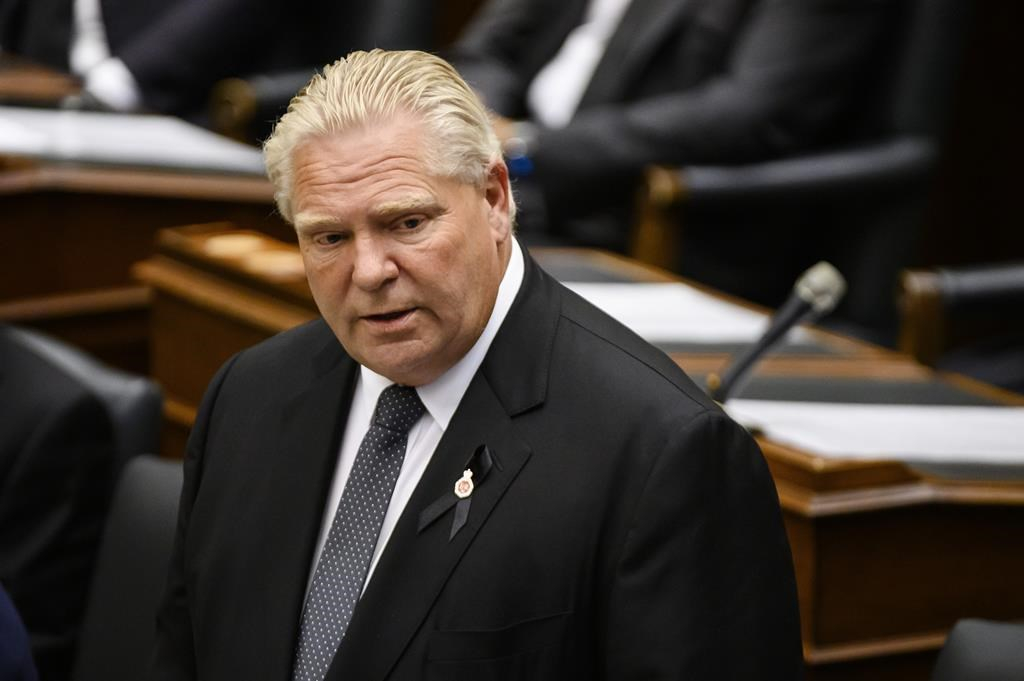Wilderness, wetlands and precious farmland will be threatened unless the Ford government withdraws its legislation to expedite home-building, says an Ontario coalition of concerned organizations.
“Specifically, they are going to allow more sprawl than was allowed before,” said Mark Reusser, a farmer, director of the Waterloo Federation of Agriculture and coalition member. “They will take away the last remaining provincial protections that have stopped land speculators.”
A coalition of 65 organizations is pressing the Ford government to reconsider and withdraw Bill 185, also known as the Cutting Red Tape to Build More Homes Act, and proposed changes to the Provincial Planning Statement. The coalition argues these legislative changes will lead to rampant urban sprawl that adversely affects farmland and natural areas.
Early this year, the Ford government introduced the legislation and changes aimed at “building more homes faster.” The government committed to expediting its processes and facilitating construction of 1.5 million homes by 2031. The new legislation aims to reduce bureaucratic hurdles, improve service delivery and save people and businesses over 1.5 million hours and $1.2 billion annually.
But former Toronto mayor David Crombie also slammed the changes.
“This government has used the housing affordability crisis to justify changing rules to make it easier to build more expensive, single-family homes on farmland and natural areas,” said Crombie, now chair of the Friends of the Golden Horseshoe and a coalition member.
“This is bad planning, bad for the environment and it won’t help the housing crisis. These policies would divert construction workers and materials away from building the affordable homes we need in communities where people already live and services already exist.”
The legislation will also facilitate more sprawl by permitting development on land zoned as rural, which is often farmland, said Reusser.
“Our great concern is that this will lead to more development… on farmland and the loss of farmland.”
Only five per cent of Ontario’s land is suitable for agriculture, with less than half of that classified as prime farmland, he emphasized. “We’re already losing 319 acres of farmland daily to various developments,” Reusser said. “These legislative changes will likely accelerate this loss, leading to housing developments in inappropriate locations and compromising the protection of valuable farmland and natural features.”
Reusser told Canada’s National Observer that another significant change under Bill 185 is the removal of third-party appeal rights to the Ontario Land Tribunal for official plans, amendments and zoning by-laws. Meanwhile, developers are allowed to appeal their own applications for settlement expansion if rejected by municipalities.
“If a developer wants to expand the urban boundary to build on 100 acres, the municipality’s approval would be final, no one can appeal it because there is no third-party appeal,” said Reusser. “However, if the municipality says no, the developer has the right to appeal. Only the developer can appeal the municipality's decisions, not any third party, even if that third party is directly affected.”
“Bill 185 continues the Ford government’s systematic dismantling of our democratic rights by taking away the right of the public to appeal sprawl development decisions,” agreed Victor Doyle, professional planner and former manager of planning with the Ontario Ministry of Municipal Affairs and Housing, in a statement shared with Canada’s National Observer. “This means only developers will have the right of appeal to the Ontario Land Tribunal - making it essentially a developers’ only tribunal. How is that fair?”
Reusser said development should also be concentrated within existing settlement areas. “It’s far cheaper and more efficient to service residential development within villages, towns or cities due to existing municipal services and water supplies.” It’s also more beneficial for the environment. “Urban development within these boundaries is closer to public transit, reducing car dependency, pollution and carbon emissions.”
Reusser also criticized the consultation process for the proposed changes as insufficient. “The public consultation was limited to just one month,” he noted. “Given the significance of these changes, a more extended consultation period was necessary to ensure thorough engagement with farmers and residents.”
Canada’s National Observer reached out to the Ontario Ministry of Municipal Affairs and Housing, and Ministry of Red Tape Reduction, but did not receive a reply in time for publication.
The old cut redtape excuse
The old cut redtape excuse played by right wing governments in order to have less regulation, more profit for builders and less choice for consumers, let alone the greater cost of expansion on municipalities and their tax rates. Totally one sided. The approval process can be improved but red rape excuse is nonsemse






Comments